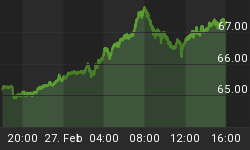Between Monday’s close and Wednesday, China’s tech giants had lost a whopping $280 billion in market cap as Chinese regulators make a desperate attempt to regain control of the tech monsters they unleashed in the global game of tech dominance.
In a series of sudden moves that came immediately after Ant Group founder Jack Ma--arguably the biggest threat to the Communist Party--brazenly criticized the authorities and directly challenged them in a public setting, the regulators have descended with a vengeance.
After suspending Ant’s planned IPO in Hong Kong and Shanghai over non-compliance with new draft regulations released last week, just a day before the massive fintech company was set to go public, the authorities have now unveiled new internet rules designed to put tech in its place.
The new internet guidelines--released by the State Administration for Market Regulation, the Central Internet Information Office and the State Administration of Taxation--aim to bring tech operators in line with laws, regulations, taxation and social responsibility. They also intend to halt abusive, monopolistic practices.
And they released the new rules on the eve of one of China’s biggest online shopping holidays--”Double 11”, a September 11 consumer bonanza.
The rules, in essence, are an update of the 2008 anti-monopoly law, and they are a long time in coming.
The result so far has been shock and surprise among industry leaders, though they should have expected this.
Regulations have failed to keep pace with China’s tech giants, and Ma’s outburst aimed at regulators and banking officials only served as a stark reminder to the Communist Party that they cannot be seen as having allowed tech leaders such as Jack Ma to publicly criticize them and publicly demonstrate no fealty to regulators.
For global investors who have piled into these Chinese tech giants with only a cursory understanding of the risks, it’s been a bit of a culling.
Alibaba and JD.com (20% owned by giant Tencent) are positioned for their worst week--ever.
Alibaba stock has shed 9% in five days.
JD.com ( went from $99.91 five days ago to a low of $75 on Wednesday morning, before crawling its way back to around $87 by midday Thursday.
Combined, five tech giants--Alibaba, Tencent, Xiaomi, Meituan and JD.com--shed $280 billion in market cap on Wednesday alone.
The million-dollar question now is what investor sentiment will make of this. With JD.com shares climbing back, it appears that investors are cautiously optimistic that the wave of new regulatory moves will not crush the growth of China’s powerhouse tech giants.
But they will be put in their place, which may indirectly slow growth for the near-term. It’s the million-dollar question because it has no clear answer at a time when the Chinese Communist Party is scrambling to figure out how to simultaneously benefit from the explosive growth of these companies and keep them in check and playing by whatever rules are thrown their way.
Hong Kong-listed shares of Alibaba plunged 9.8% on Wednesday, while Tencent dropped 7.39%. Smartphone maker Xiaomi also declined 8.18% and Meituan fell 9.67%. JD.com also saw its stock plummet 9.2%.
- The combined losses of the five tech heavyweights since their Monday close has contributed to more than $280 billion being wiped off in terms of market cap at the close of the trading day in Hong Kong, according to CNBC calculations.
- China’s State Administration for Market Regulation on Tuesday announced a set of draft guidelines aimed at curbing monopolistic behavior on internet platforms.
By Michael Kern for Safehaven.com
More Top Reads From Safehaven.com:
















